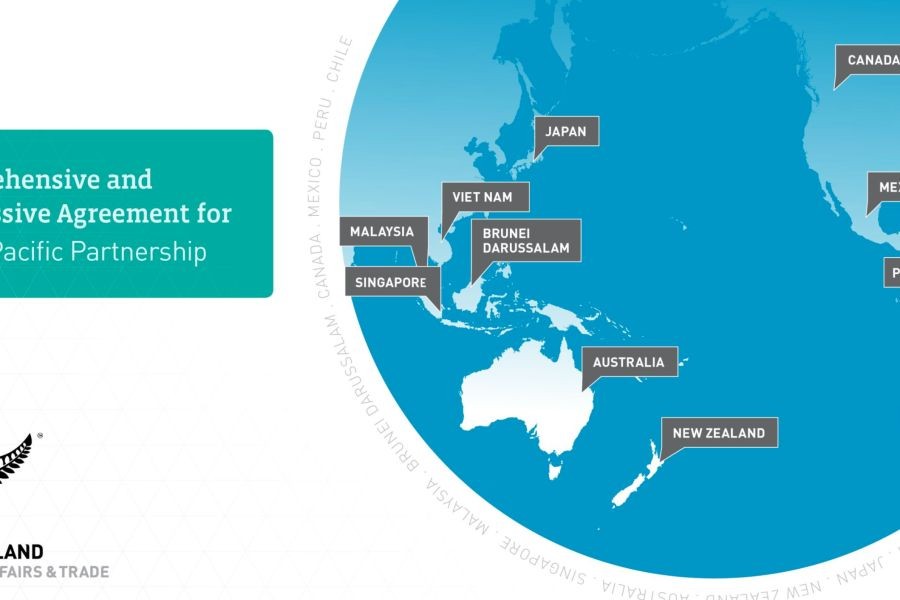In a rapidly evolving global economy, New Zealand’s trade agreements have become a cornerstone for future economic growth, offering both opportunities and challenges for the nation. With a population of just over five million, New Zealand heavily relies on its ability to forge strategic partnerships that expand its market reach and bolster its economic prospects. As global trade dynamics shift, understanding the significance of these agreements is imperative for financial advisors and policymakers alike.
Understanding New Zealand's Trade Landscape
New Zealand has long been a proponent of free trade, with its export-driven economy heavily reliant on international markets. According to Stats NZ, exports accounted for 28% of the country's GDP in 2022, underscoring the critical role that trade plays in economic stability. Key industries, including agriculture, forestry, and fisheries, have historically driven export growth, but there is a growing emphasis on diversifying into technology and services.
Case Study: Comprehensive and Progressive Agreement for Trans-Pacific Partnership (CPTPP)
The CPTPP is a landmark agreement that illustrates the potential benefits of strategic trade partnerships. Initially known as the TPP, this agreement includes 11 countries, accounting for 13.4% of the global economy. For New Zealand, the CPTPP offers reduced tariffs on exports and improved access to key markets such as Japan and Canada.
Problem: Prior to the CPTPP, New Zealand exporters faced high tariffs and limited market access in several countries.
Action: By joining the CPTPP, New Zealand negotiated reductions in tariffs on primary exports, including dairy and beef.
Result: Since the agreement's implementation, New Zealand's export revenue to CPTPP nations has increased by 4.5%, according to the Ministry of Business, Innovation and Employment (MBIE).
Takeaway: The CPTPP highlights the importance of multilateral agreements in enhancing market access and reducing trade barriers for New Zealand businesses.
The Importance of Trade Agreements for Economic Growth
Trade agreements are pivotal in shaping the economic landscape by fostering increased market access, enhancing competitiveness, and promoting foreign investment. For a small, open economy like New Zealand, these agreements are essential for achieving sustainable growth and resilience against global economic shocks.
Pros and Cons of Trade Agreements
✅ Pros:
- Expanded Market Access: Agreements like the CPTPP provide New Zealand with preferential access to major economies, opening doors for increased exports.
- Job Creation: By boosting export industries, trade agreements can lead to higher employment rates in sectors such as agriculture and manufacturing.
- Investment Opportunities: Reduced trade barriers encourage foreign investment, leading to technology transfer and innovation.
❌ Cons:
- Regulatory Challenges: Aligning domestic policies with international standards can be complex and costly.
- Dependency Risks: Over-reliance on a few markets can expose New Zealand to economic volatility if global conditions change.
- Domestic Industry Impact: Increased competition from imports may adversely affect local businesses not prepared for global competition.
Debunking Common Myths About Trade Agreements
Trade agreements are often misunderstood, leading to misconceptions that can hinder informed decision-making.
Myth: "Trade agreements only benefit large corporations."
Reality: In reality, small and medium-sized enterprises (SMEs) stand to gain significantly from improved market access and reduced trade barriers, as evidenced by a 2023 report from NZTech.
Myth: "Trade agreements lead to job losses."
Reality: While some sectors may experience job displacement, overall employment prospects improve as export industries expand, creating new opportunities.
Myth: "Trade agreements harm local industries."
Reality: Strategic agreements include provisions to protect sensitive industries, ensuring balanced growth and competitiveness.
Future Trends and Predictions
Looking ahead, New Zealand's trade strategy will likely focus on digital economy agreements and sustainable trade practices. According to a 2024 report by Deloitte, by 2030, digital trade could contribute over 10% to New Zealand's GDP, driven by advancements in e-commerce and fintech.
Additionally, environmental considerations are becoming paramount, with future agreements expected to integrate sustainability clauses that promote eco-friendly practices and carbon reduction targets.
Final Takeaways
- Trade agreements are crucial for New Zealand’s economic growth, providing access to larger markets and fostering competitiveness.
- Opportunities exist for SMEs to leverage these agreements for expansion and innovation.
- New Zealand must balance trade liberalization with domestic industry protection and sustainability considerations.
As a financial advisor, staying informed about trade developments will enable you to guide clients in navigating these changes effectively. What strategies will you adopt to capitalize on the evolving trade landscape? Share your thoughts below!
People Also Ask
How do New Zealand's trade agreements impact local businesses?
Trade agreements enhance market access, allowing local businesses to expand exports and increase revenue. According to MBIE, such agreements can lead to a 20% rise in export volumes.
What are the biggest misconceptions about trade agreements?
A common myth is that trade agreements are detrimental to local industries, but they often include protective measures to ensure balanced growth.
What future trends could affect New Zealand's trade strategy?
By 2030, digital trade will play a significant role, and sustainability clauses in agreements will become more prevalent, shaping the trade landscape.
Related Search Queries
- New Zealand trade agreements impact
- Benefits of CPTPP for New Zealand
- New Zealand export industries
- Digital trade in New Zealand
- Sustainability in trade agreements
- New Zealand trade strategy 2025
- Role of SMEs in New Zealand trade
- Future of New Zealand economy
- New Zealand foreign investment trends
- Impact of global trade on New Zealand
































BeatrizPat
9 months ago